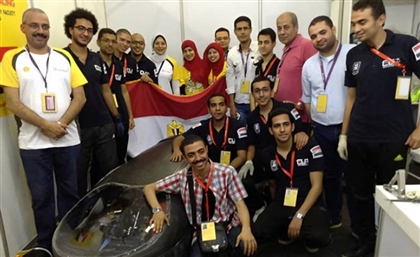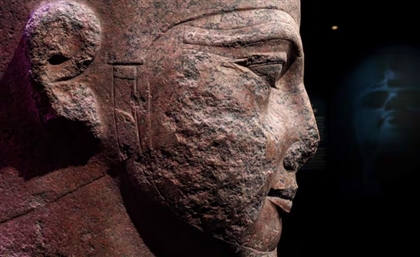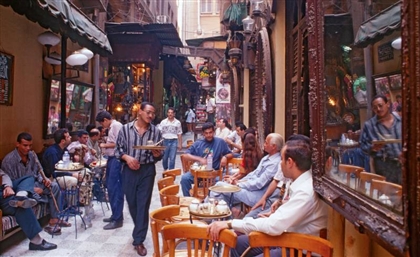Paper Dolls to Pixel People
Anam Sufi gets all philosophical on us, arguing for the appreciation of people beyond their cyber portraits, adding that a virtual 'like' says nothing about our lives.

Any child born before the advent of digital games, at a time when the great outdoors trumped the electric hues of television and computer screens, would recall the use of paper dolls. Equipped with varying outfits flexible to be tailored into whatever shade or tone you desired, they served as two-dimensional platforms for expression. Red lips? Blue shadow? Ballroom or beachwear? You got them!
But as the tides of time flowed forward, these dolls dissolved into the realm of memory to be replaced by a more complex form of projection; Internet profiles. While man has consistently strove to bridge the gap of space and time, whether it be through technological advances in transportation or communication, I believe we have reached a point demanding of reflection; are we at a point of decreasing returns when it comes to “lessening” barriers to honest communication between people; a point where our dedication to technology and inanimate objects has effectively wedged an expanding gap between the physical and tactile bond between separate individuals?
I’m not touching on anything novel. After all, evidence of the overarching abundance of technology in places where it shouldn’t be can be found anywhere and everywhere these days. That’s not to say it’s all bad. I mean, technology in the 21st century has played an arguably instrumental role in the politics and world order of our time. But what can be said of its role on a more micro-scale? I won't be so arrogant and dogmatic as to suggest there are no benefits to Facebook, Twitter and Instagram in terms of connectivity, but I will point out the irony in using these platforms as a means of orchestrating self-actualisation. Abraham Maslow’s Hierarchy of Needs places self-actualisation at the very top; accordingly this is something we all aspire to achieve; an understanding of the self that is nestled in the actualisation of one’s full potential. The Internet fads of modernity, much like the paper dolls of our past, have allowed individuals to construct a image of themselves through the use of photos, statuses, posts, and whatever else you might find while scrolling through your news feed. But it begs to question; is this enough?
To reference philosophy, if a tree falls in a forest and no one is around to hear it, does it make a sound? Similarly, if a social gathering takes place and no one posts it on the Internet, did it happen? While the answer is fairly obvious, it seems that the alternate response is becoming increasingly more appropriate. It appears that our desire to prove a stimulating social life has reached a decree whereby the “fun” shown in the image, transcends the “fun” of the actual moment.
In the same vein, I was killing time, YouTubing something the other day when I came across Coca-Cola’s latest “Love over Like” advert. The video is a highly inspirational series of images that convey the idea of elevating the senses to not be content with merely “liking” the things we experience in life, rather assume acts that propel us to “love” our existence. A man and woman kissing, teens rolling in paint, children tumbling down hills; the audience covets that sense of freedom, the desire to “live free” and break the barriers of dormancy. I couldn’t help but forge the connection between the term “like” and the connotation it carries with the cyber world. We should not be content with experiencing life on the Internet, or with constructing our social settings in manners that would complement our virtual cyber realities. It should work in the opposite direction.
What I find most limiting about the culture of projecting ourselves, as we would like to see ourselves, on a cyber canvas is the tradition of applying “less is more” unto the masses. There occurs a shift in celebrating the details of a person in the way in which posts, statuses, hashtags and images limit the understanding of who a person is; effectively using ten-word-tid-bits to formulate an opinion of a person. Twitter limits us to 140 characters, no one can be asked to read a lengthy status and, to quote the old saying, a picture is worth a thousand words. But frankly my dears, all that amounts to bona fide bullshit. I am greater than the pixels that comprise “me” on a computer screen, and what you see of my posts does not grant you a license to establish an adequate and informed decision when it comes to the question of me.
To cite an example, I came across a meme the other day of an image that presented two pictures of Libya. The first showed a normal neighbourhood, while the other displayed smoking and war-torn buildings and the writing read: Libya before Qaddafi and Libya after the Americans. Eight words and two pictures; I suppose that amounts to 2008 words on the matter, right? Well, excuse my French, but fuck that. None of the above representation spoke to the atrocities committed by the tyrant in power, nor did it touch on the more salient political undertones that led to the need of violence to diffuse the ground situation in Libya. I won’t indulge in a library of political know-how, but here’s hoping you see my point.
Less is not more. Whether it be paper or pixel dolls, there’s a need to afford ourselves more credit when it comes to understanding and formulating an opinion on one another. You might view this article as the words of a pre-teen who feels misjudged by the environment that surrounds her, but I like to see it as an ode to the essence and appreciation of man’s abundant dynamism.
P.S. Hit Like.
- Previous Article Saudi Royal Pisses Everyone Off
- Next Article Nomades Land
























